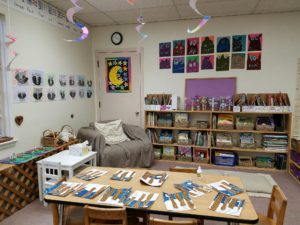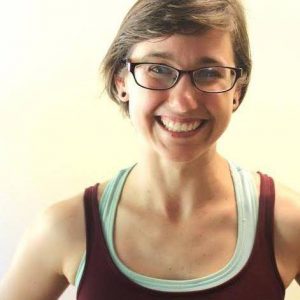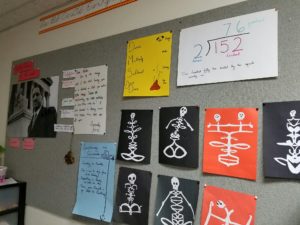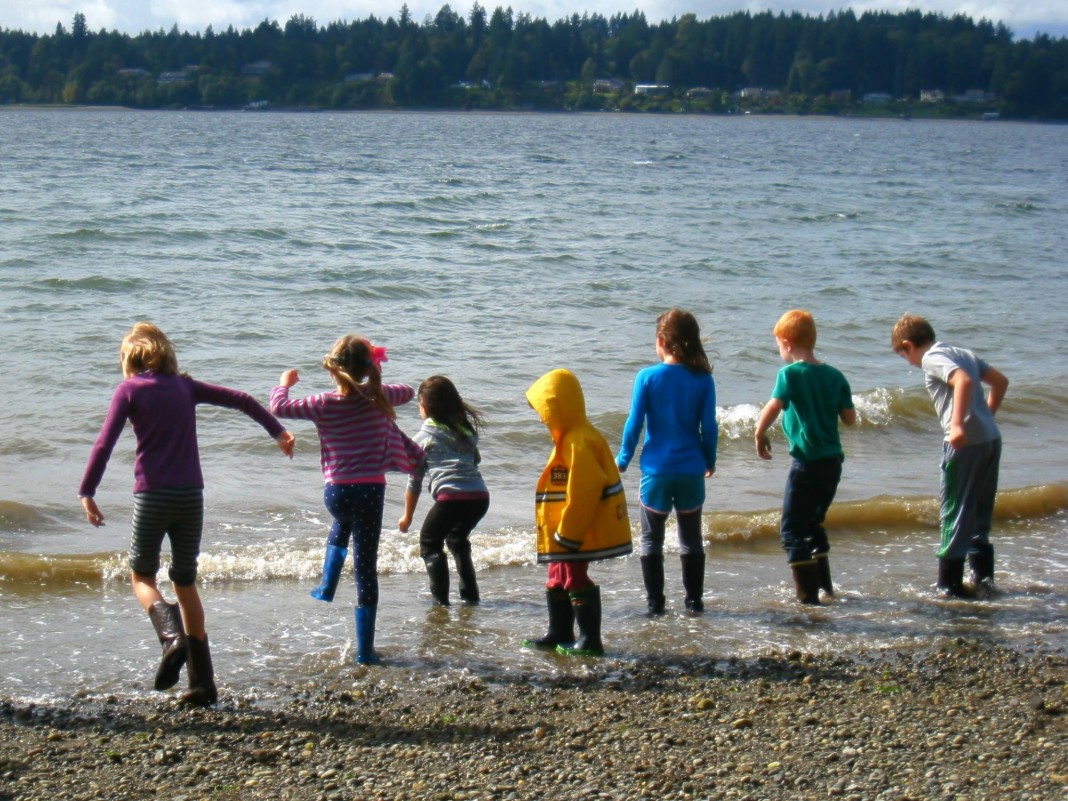Third, fourth and fifth graders are at a unique spot in their educational careers. They’re not little kids anymore and they’ll soon be facing adolescence and middle school. They carry a different sense of themselves in the world and begin digging deeper and applying the skills they developed in their first few years of school.
At Olympia Community School (OCS), the small class size has huge value to the students who attend third through fifth grades. With a ratio of 14 students to one teacher, the small classes allow a more individualized learning experience.

“Their learning is integrated with real life, hands on experience that crosses over all academics,” says Janice Rosen, enrollment coordinator for OCS. “This means their understanding of academic concepts goes deeper and their love of learning becomes stronger. Our small class size also enables the teacher to stretch the curriculum to meet each child where they are, personalizing the lesson to challenge and engage the student. Our students take pride in their individual and classroom success while learning to set attainable goals and develop a strategy on how best to accomplish them.”
Joanna Gibson teaches third through fifth grades at OCS and appreciates the opportunity to teach kids at this developmental stage.
“Third grade is the turning point toward upper elementary where students really start to have that deeper understanding, fmaturity and depth of thought,” says Gibson. “So in my opinion, third grade is the time you say, ‘Ok you’ve got these foundational reading, writing and math skills, but we’re going to take that basic knowledge further.’”
Gibson describes what that deeper learning looks like:
“We look at stories and ask, ‘Why was the author doing that? How did it work out? How can we apply it to our own writing?’ We look at numbers, and say, ‘Ok you know how to add, subtract and multiply, but how do you apply those concepts to decimals and fractions? I provide complicated real-life problems and ask, ‘How are you going to tackle that?’”

Gibson loves the small class sizes at OCS because she knows where each student is—what their interests and challenges are – so she can support them on every level.
Also, because the class is small, conversation and interests can easily guide curriculum choices. For instance, this year the upper grade students are learning ukulele based on a unanimous class decision.
“It’s been a really fun thing,” says Gibson. “At the beginning of the year I asked the kids, ‘What are some changes you would make at the school?’ The kids noted that if they were at a larger school, they would be in band or orchestra, so we decided to bring in a ukulele for each student.”
Or, says Gibson, they can decide a particular issue is important to them, so we all take a walking field trip to the Capitol and talk with representatives who can help them work toward the changes they want to see in their world.
On campus, the upper grades engage with younger students on a regular basis, an important part of the OCS philosophy.
“Older students in our elementary school reap the benefits of engaging with the younger students through theme collaboration, workshops, peaceful conflict resolution, daily mindfulness practice, recess and field trips,” says Rosen.
“Their learning is integrated with real-life, hands-on experience that crosses all academic areas,” she continues. “This means that they develop and build from a deeper understanding of academic concepts and strengthen their innate love of learning.”

Photo credit: Nikki McCoy
“The end result is a cohort of confident learners who are prepared for their transition into middle school with all the tools necessary for a successful social, emotional and academic future. Olympia Community School’s program is a great opportunity for your third or fourth grader to learn in an environment that fosters self-awareness and awareness of others, their community and the world around them.”
To find out more about transferring your third or fourth grade student, attend an upcoming open house or schedule a private tour please contact Janice Rosen at enrollment@olyedu.org.
Olympia Community School is Thurston County’s oldest independent school, operating as a non-profit since 1973. OCS is centrally located at 114 20th Ave SE, Olympia.




















































